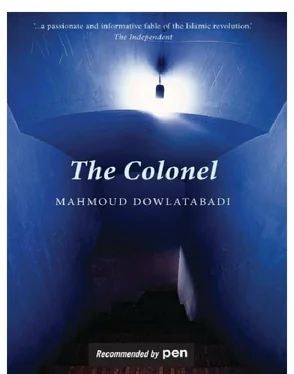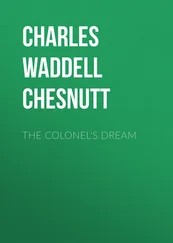Qorbani did not come back home with him. He had a lot to do, marching the crowd of mourners to the town square, ‘Justice Square.’ He came as far as the end of the alleyway with him where, out of sight of the crowd, he turned and spat at him:
“If it hadn’t been for those two or three other bastard children of yours, this one alone would have allowed you to hold your head up high for the rest of your life. But now…”
And with that Qorbani stalked off. In any event, the colonel had nothing to say to him. He might have found an answer, if he had had any further interest in life. He might just have spat in his face.
I might, possibly, have tried to get on side with him, by pretending to agree with him that those other children of mine were indeed bastards, and try to see my days out living off the name of the one who wasn’t a bastard. But who can say?
Who knows what goes on in another person’s mind? Had Qorbani said what he had said out of sympathy for him? Or out of fear that his father-in-law might become a burden to him?
Qorbani knows, better than his wife does, that I don’t have a pension. And another thing! It could well be that he hates me and my children because he thinks the connection with us might get in the way of his bid for the contract to renovate the mortuary.
But in any case, the colonel knew that Qorbani had no idea which way his mind was going, and how far he had got in his plan. If he had known how close the colonel was to his end, he would not have bothered to offer him any sympathy, real or otherwise. Whatever the case, the colonel had no wish to get involved in trading petty insults.
I still have one or two things to attend to. I ought to take that packet of wedding sugar plums round the town and share the 35 tomans among the poor. Then I must let the canary go free, or at least leave its cage door open so that it can fly away if it wants to. Once I’ve done that, the only question left to settle will be what I am going to do about myself. Anyhow, the first thing to do is go home.

The gate is still wide open and the colonel has no need to search his pockets for the key. Nothing worries him now. He knows that the house will soon be taken over by the state and — maybe — used for charity. Of course, Qorbani should have no expectations; he will get more than his fair share of the inheritance by winning the tender to do up the mortuary…
Almost nonchalantly, the colonel strolls into the yard. He does not even regret not taking a last look at the photograph of Masoud in the new shrine they had put up outside the gate. Nor does he worry whether it was himself, or someone else, who has left the light on in the sitting room. He just hopes that the stove is still going. His feet untrammelled by care for life or death, his intention now clear, he strides towards his end.
But what he sees on entering the living room pulls him up short: The Colonel, and someone whom he addresses as ‘Your Excellency’ are sitting opposite one another at the table. 55
The Colonel is sitting in my old place, and His Excellency is on this side of the table, in Amir’s usual place. I am standing under the arch and The Colonel is facing the door, while His Excellency has his back to it. I seem to have interrupted a secret meeting and I am embarrassed by my mistake .
The Colonel ignores my presence. His piercing black eyes are trained on His Excellency, as if to stop him turning round to look at me. I look at The Colonel for an answer. Ignoring me, he dabs at the blood on his neck with his handkerchief and carries on with his conversation. I listen in:
“You were told to leave the country, Colonel.”
“Yes, you did tell me that, Your Excellency.”
“I sent you that order via HQ. According to the order, you and Farrokh and Bahador 56were to take two years’ salary and go to Europe to complete your training.”
“I had to deal with some outstanding matters that fell within my remit. That didn’t require any further training.”
“Outstanding matters, indeed! You take yourself far too seriously, Colonel… They could have been dealt with in your absence.”
“I have never shirked my duty. I have many enemies always laying traps for me. I couldn’t go away.”
“If you’d agreed to leave Persia, your enemies would not have been a problem. After all, there’s not one of them that isn’t in our pocket.”
“I came back from Europe to finish what I had to do, and had no wish to go back again. I saw no need to do so.”
“I’m not interested in whether you want to go back to Europe or not. I am telling you to leave Persia.”
“I am aware of that, Sir, but I won’t leave my country. Iran is my country. Can’t you see that?”
“When you talk about your country like that, you sound more arrogant and aggressive than you should be, Colonel. They don’t stand for that sort of thing. And I won’t put up with it, either. You disrupt our lines of communication, seize our weapons and you insult a friendly nation. And you then ignore a friendly suggestion that you should leave Persia… No, Colonel, you can’t expect to get away with such insolence. Not you, not anyone.”
“I don’t expect to, Sir. I blocked your communications because it was my duty to do so. I impounded your arsenal of weapons because they were illegal. And I commandeered your cavalry and other equipment because I believed that you were not entitled to set up an independent militia outside state control. I was just doing my duty as an Iranian soldier.”
“Your conduct was not that of a Persian officer, Colonel.”
“What do you mean?”
“The orders you received from me came direct from Army HQ.”
“Whose HQ?”
“Persia’s, of course.”
“So, who the hell are you to give me orders, Sir? May I enquire as to what your position is, exactly?”
“Colonel, kindly stop being so difficult and aggressive, not to say insubordinate!”
“Insubordinate to you, maybe.”
“It was a question of an understanding between two governments, which you insisted on interfering with. Otherwise, why did you disobey an order which?”
“What order? If an order had come from the government of Iran…”
“Iran had no effective government at the time, my man. Surely you can see that?”
“I’m well aware of that. And that is precisely why you and I should have been trying to set one up!”
“What, some kind of ‘government of national unity,’ no doubt? You lot philosophise like bloody pie-in-the-sky German idealists, Colonel. You’re nothing but romantic minstrels.”
“I don’t like your tone, Your Excellency. I know just what kind of a man you are and what sort of grand family you come from. Nevertheless, I am happy to try and show you that our country, mine and yours, has never lacked philosophers and musicians of its own.”
“Always harking back to the past, aren’t you? I can’t stand your arrogance when you start going on about ‘your country.’ I should have got those Kurds to sort you out earlier.”
“Well, in the end you did, and as usual you acted too soon. My mistake was in not throwing you out of the region I was responsible for and exiling you to Zahedan.”
“Not so much a mistake as not having the capability of doing so, I suspect. You see, your giving orders to lay siege to the consulate of a friendly nation has not been forgotten, and the insult will not be forgiven, I can assure you.”
“This attitude of yours is, of course, in your own interest. I’m sure you could teach us plenty on that score.”
“You could have learned a lot from remembering how your namesake Taqi Khan Amir Kabir ended up.” 57
Читать дальше













